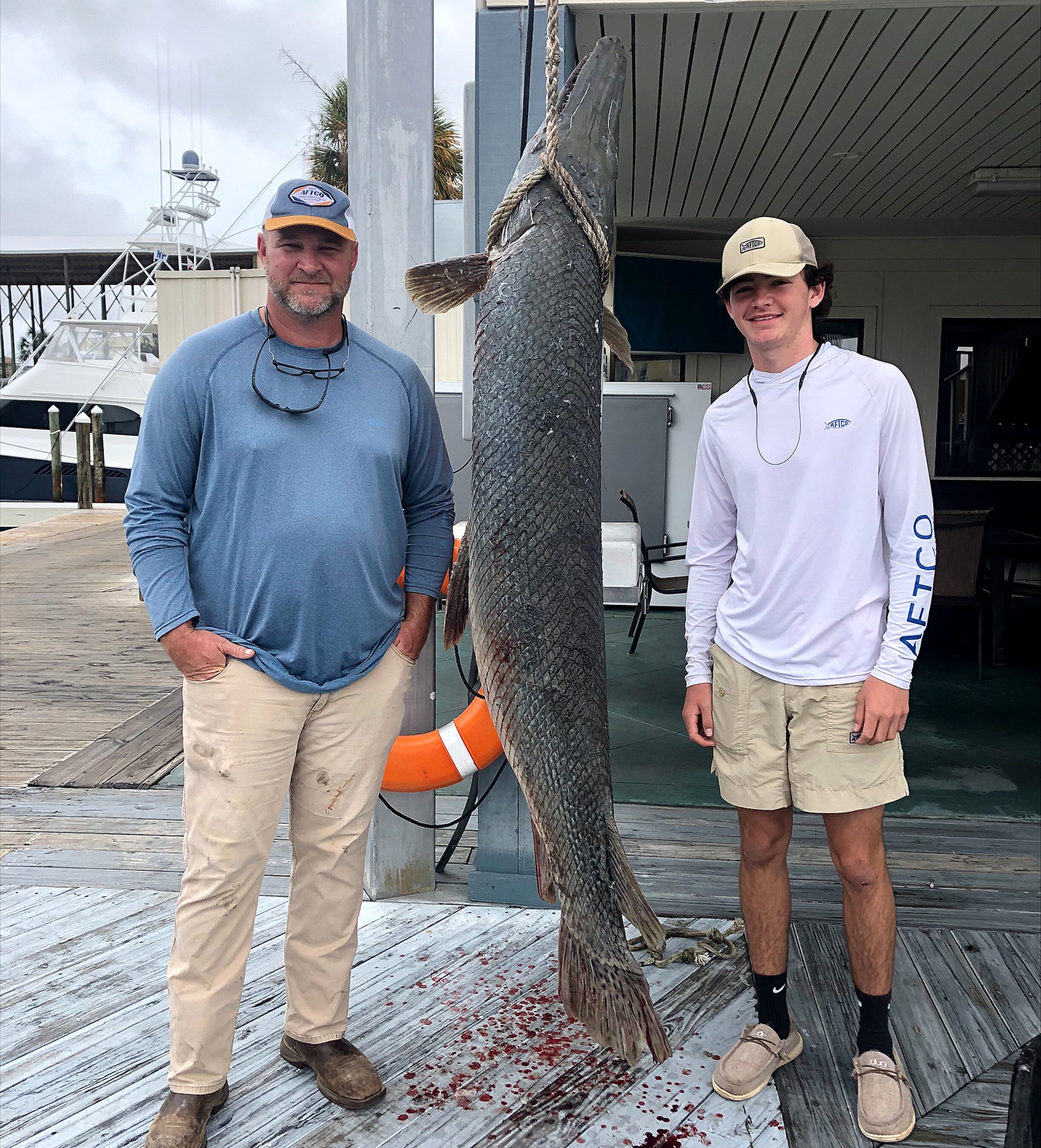By DAVID RAINER, Alabama Department of Conservation and Natural Resources
While most people were preparing to chow down on turkey and dressing on Thanksgiving, Keith Dees and his son, Huntley, were in a special place – the Mobile-Tensaw Delta. Little did they know the result of their trip would be hauling a record fish into their bass boat.
“Generally, our tradition is to go fishing on Thanksgiving morning,” said Dees of Fruitdale, Alabama. “Sometimes we go (speckled) trout fishing. There’s a lot of stuff you can do that time of year. But we went bass fishing. We’ve had some really, really memorable Thanksgiving trips. About five years ago, we had a 250-300 trout trip, doubling up for six hours straight. We were actually talking about that trip because we’ll never top that trip.”
On the most recent Delta excursion, the two had already caught several redfish and numerous largemouth bass when they headed for Raft River behind the island at Little Bay John and Big Bay John. The elder Dees was throwing a Z-Man Evergreen Jack Hammer chatterbait along the grass line when his line went slack.
“My first thought was I had hooked another big redfish,” he said. “I was cranking as fast as I could to try to get the line tight. The water is salty and cold that time of year, so the clarity was not great. I see a fish go by the front of the boat, a glimpse of a fish. I told my son, ‘I’ve got one of those big redfish.’ We caught one that weighed 32 pounds up there a few years ago. Then it went about 30 or 40 yards out and just kind of stopped. It wasn’t like a redfish run.”
Fishing with a medium-action bass rod with 15-pound-test fluorocarbon line, Dees couldn’t put much pressure on the fish, and they just started following the fish around with the trolling motor.
“We were laughing and joking about what I had,” he said. “Then I thought it might be a big black drum. I’ve caught them before on a chatterbait. It rolls on 10-15 minutes. So now the curiosity is getting the best of us. One, I want my $20 bait back and, two, I want to know what I’ve got hooked.”
About 30 minutes into the fight, they finally realized what was causing the commotion. A huge alligator gar came up for a gulp of air.
“When it comes up, I knew it was big, but I didn’t even remotely know it was a state record,” Dees said. “That never crossed my mind. I love to cook, so I thought I want to catch this joker so we can eat him. I’ve got a bunch of Cajun friends, and they take it and cut it in steaks and blacken it and do medallions. It’s just delicious. I’m thinking I’m about to get a bunch of freezer meat.”
Another hour and a half ticked by, and Dees said the huge fish never tried to head for deep water and stayed mostly in 2 to 4 feet of water. The fish would sit on the bottom until Dees’ 20-foot Triton got close, and then it would take off again.
“I thought we may have a chance to wear him down, but I still had no idea it was a state record,” he said. “After about two hours, it got to where we could pull the boat up by the fish, and it would just swim along.”
That’s when the father-son team started devising a plan to try to get the fish in the boat. Without a harpoon or gaff, Huntley got the tow rope out with a plan to lasso the fish.
“I figured that was our only chance to get him,” the elder Dees said. “I wasn’t getting anywhere near that joker’s mouth.”
However, getting the rope around the gar’s head would mean having a slack line and a chance to lose the fish. Instead, Dees told his son to get his heavy-duty flipping stick out of the rod box, find the heaviest hook he had in the tackle box and tie it with a snell knot.
“When you snell a hook, it forces it to kick out,” he said. “I thought we could run it under his belly and get him hooked somewhere around his front fins. I’m still thinking the fish is somewhere around 80 to 100. I had no idea he was that big. He runs the rod under the fish and basically gaffs him. I was afraid he was fixing to destroy my $500 custom rod, but I guess with the combination of the water temperature in the 50s and him being held onto for two hours, he didn’t fight much.”









